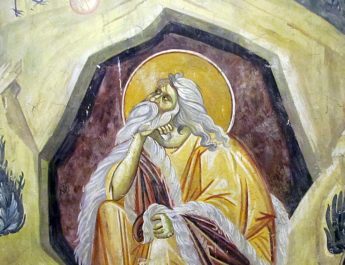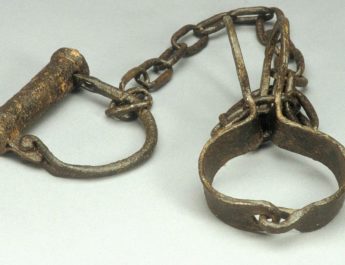Luke 11:2-4
Narrative Lectionary
2 So he saidA to them, “When you pray,B say:C
A “said” = eiron. This is to speak say, answer, command.
B “pray” = proseuchomai. From pros (advantageous for, at, toward) + euchomai (to wish, make a request, pray). This is to pray or pray for, to worship or supplicate. It is more literally exchanging one’s own wishes for God’s.
C “say” = lego. This is to speak, say, name, call, command. It is generally to convey verbally.
Father,D, E may your nameF be revered as holy.G
D “father” = pater. This is father in a literal or figurative sense. Could be elder, senior, ancestor, originator, or patriarch.
E Some manuscripts add “our, who is in heaven” = ego + ho + en + ho + ouranos. Ouranos may be related to oros (mountain, hill); probably related to airo (raise, take up, lift, remove). This is the air, the sky, the atmosphere, and heaven. It is the sky that is visible and the spiritual heaven where God dwells. Heaven implies happiness, power, and eternity.
F “name” = onoma. May be from ginosko (know, recognize, learn from firsthand experience). This is a name, authority, cause, character, fame, reputation. The name was thought to include something of the essence of the person so it was not thought to be separate from the person.
G “be revered as holy” = hagiazo. From hagios (sacred, holy, set apart, different other; physically pure, morally blameless, or ceremonially set apart); from hagnos (holy, sacred, pure ethically, ritually, or ceremonially; prepared for worship, chaste, unadulterated, pure to the core; undefiled by sin; figurative for innocent, modest, perfect). This is to make holy, consecrate, sanctify, set apart as holy, purify, venerate.
H “kingdom” = basileia. From basileus (king, emperor, sovereign); probably from basis (step, hence foot; a pace); from baino (to walk, to go). This is kingdom, rule, authority, sovereignty, royalty, a realm.
I “come” = erchomai. This is to come or go.
J Some manuscripts add “your will be done as in heaven also upon the earth” = ginomai + ho + thelema + su + hos + en + ouranos + kai + epi + ho + ge. Ginomai is to come into being, to happen, become, be born. It can be to emerge from one state or condition to another or is coming into being with the sense of movement or growth. Thelema is from thelo (to desire, wise, will, intend). This is the act of will, choice, purpose, or decree. Ouranos is the same as {untranslated} in v2. See note E above. Ge is earth, land, soil, region, country, the inhabitants of an area.
3 GiveK us each dayL our dailyM bread.N
K “give” = didomi. To give, offer, place, bestow, deliver. This is give in a literal or figurative sense.
L “day” = hemera. Perhaps from hemai (to sit). This is day, time, or daybreak.
M “daily” = epiousios. 2x in NT. From epeimi or epiousa (next, following, next day or night); {from epi (on, upon, against, what is fitting) + heimi (to go)}. This is necessary, sufficient – what is needed for subsistence or suitable for what is happening.
N “bread” = artos. Perhaps from airo (raise, take up, lift, remove). This is bread or a loaf. It is a loaf as raised.
4 And forgiveO us our sins,P
for we ourselves forgive everyoneQ indebtedR to us.
O “forgive” = aphiemi. From apo (from, away from) + hiemi (to send). This is send away, release, permit, forgive, allow to depart, discharge, or send forth.
P “sins” = hamartia. From hamartano (to miss the mark, do wrong, make a mistake, sin); {from a (not) + meros (a part or share)}. Literally, this means not having one’s share or portion – like not receiving inheritance or what was allotted to you. This word means missing the mark so it is used for guilt, fault, and acts of sin.
Q “everyone” = pas. This is all or every.
R “indebted” = opheilo. Perhaps from the base of ophelos (advantage, gain, profit); from ophello (heaped together, accumulate, increase). This is to be indebted morally or legally – having an obligation one must meet. This term came from the legal world, but was then adopted in reference to morality. In the New Testament it is used for humanity’s ethical responsibility.
And do not bringS us to the time of trial.”T, U
S “bring” = eisphero. 8x in NT. From eis (to, into, for, among) + phero (to bear, bring, lead, make known publicly; to carry in a literal or figurative sense)}. This is to carry in, lead into, or announce. It can be literal or figurative.
T “time of trial” = peirasmos. From peirazo (to test, try, tempt, or make proof of, scrutinize, or assay something; could also be examine, entice, prove, or discipline); from peira (trial, experiment, attempt, experience, assaying); from the base of peran (over, beyond, across); akin to pera (on the far side); from a derivative or peiro (to pierce). This is a test as in an experiment or assaying. It is also trial, temptation, and discipline. Further, it could be used to mean calamity, affliction, or adversity more generally.
U Some manuscripts add “but deliver us from the evil one” = alla + rhuomai + ego + apo + ho + poneros. Rhuomai is 18x in NT– including from the Lord’s prayer “deliver us from evil”. Related to eruo (to draw or drag) OR related to rheo (to flow, overflow). This is to rescue or set free. It is to deliver from danger, to snatch up. Poneros is from poneo (to toil); related to ponos (pain, trouble, labor, distress, suffering; toil, which implies anguish); from the base of penes (a laborer, poor person, starving or indigent person; someone who works for their living); from pernomai (working for a living; laborer, poor person; to work for daily bread); from peno (to toil to survive day by day). This is bad, evil, wicked, malicious, grievous, or toilsome. Properly, it is something that bears pain – it emphasizes the miseries and pains that come with evil. By contrast, the Greek kakos refers to evil as part of someone’s core character. Also contrasting the Greek sapros, which deals with falling away from a previously embodied virtue. This word can mean ill, diseased, morally culpable, derelict, vicious, malicious, or guilt. It can also refer to the devil or sinners.
Image credit: “On the Way to Pray in Gethsemane after the Last Supper: Jesus, Peter, James and John” by Tony Alter, 2017.




